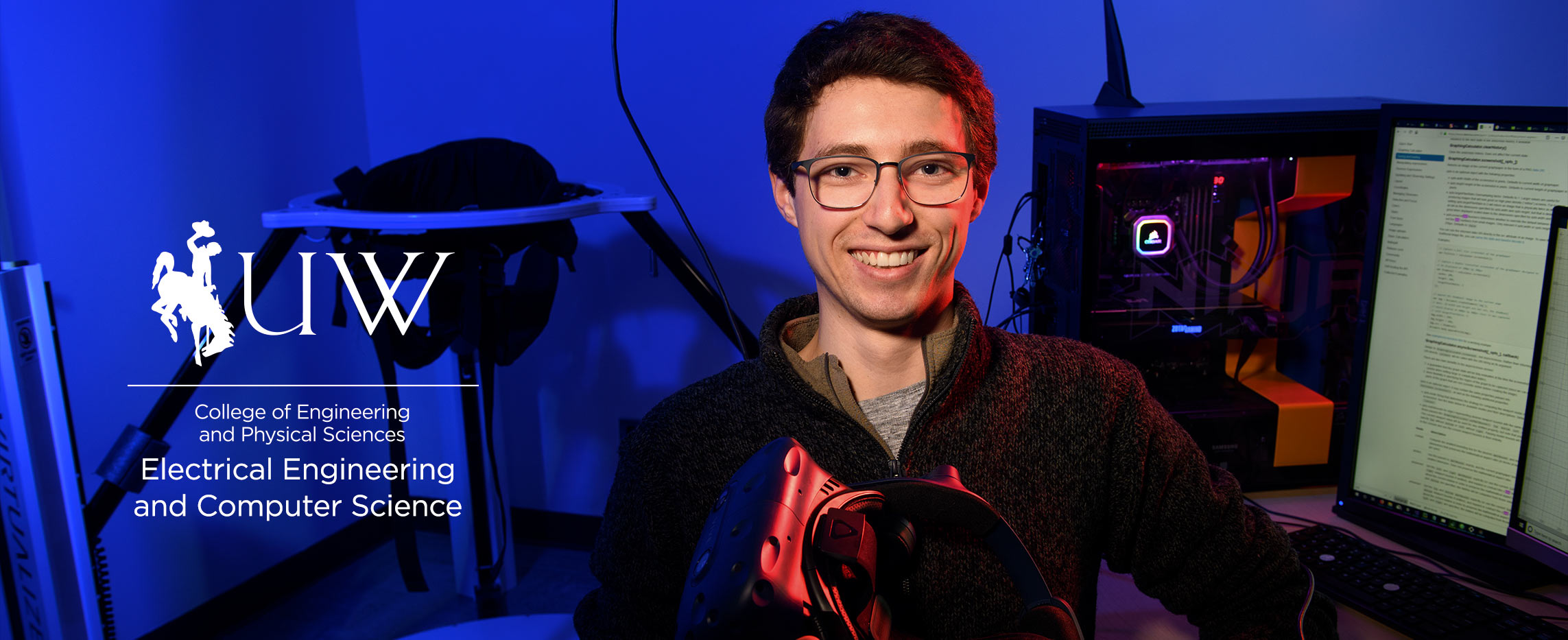

Accessible Computing with Arduino, Embedded Controllers
Digital Image Processing
Assistive Technology
XXXXXXX
Automated-methods for security and threat assessment of distributed, and/or lightweight systems and frameworks. Specifically, our research group focuses on high-level methods for detecting and mitigating information leakage from distributed systems (e.g., autonomous swarms, IoT, Edge, Blockchain) and developing automated methods to attack and protect information-rich processes, systems, and pipelines (e.g., AI/ML, continuous authentication)
Autonomous robots, human-robot interaction/collaboration, distributed and collaborative systems, robotic learning, deep reinforcement learning, optimal control.
Research is dedicated to the development of fundamental understanding in intelligent behaviors for autonomous systems across a wide range of tasks and dynamic environments.
Develop intelligent and autonomous systems through the integration of control theory, machine learning, and formal methods.
signal processing and data analytics for power and intelligent transportation systems
RF and microwave electronics
Noise processes in RF and microwave oscillators, amplifiers, and other devices
Generation and synthesis of RF signals that are very stable in frequency and amplitude
XXXXXXX
Investigating the philosophy of computing, respecting both computational precision and humanistic interpretation. The study treats critical current concerns about the Internet, and more--- not only the management of data, but the character of data; not only the security of search, but the space of search; not only the efficiency of algorithms but the nature of algorithms
Theoretical computer science
Computational Complexity
Algorithmic randomness
Artificial Intelligence and Machine Learning, in particular automated Machine Learning, and the application of AI/ML to other disciplines, for example Materials Science.
Research in computer vision, using both Bayesian and deep learning approaches.
Probabilistic robotics and optimization, especially novel applications of convex optimization.
Accelerated computing with GPUs/FPGAs for Weather and Climate Forecasting Modeling, Quantum Computing and Quantum Algorithms, Machine Learning for Applications in Transportation, and Augmented Reality Devices for Medicine and Surgery.
Distributed Computing and Systems, Fault-Tolerant, Formal Method
Power system stability and control, power system reliability, optimal power flow
Integration of renewable energy resources and electric vehicles
Energy storage systems, microgrids
Development of aggressive feedback compensation despite limited plant knowledge, variable plant dynamics, and limited/flawed actuation. Robotic, aerospace, and power systems have been investigated in this context
Statistical Signal Processing
Signal Processing Methods applied to Power System Problems
Signal Processing and Communication Education Research
In the Optoelectronics Research Lab we study the optical properties and charge carrier dynamics of different semiconductor materials, mainly nanostructures and or quantum dots. With our tunable ultrafast pulsed laser system we conduct measurements such as Photoluminescence, Time Resolved Photoluminescence, degenerate and white light probe Transient Absorption Spectroscopy, and THZ spectroscopy on our samples to better understand and improve their properties for use in Lasers, detectors, solar cells and other electronic and optoelectronic devices.
The research focus is on designing secure and privacy preserving machine learning, computer vision, and natural language processing models. The research spans applications of these models to wearable devices, biometrics, attack-averse authentication, and side-channel attack formulation.
Image/Signal Processing, Computer Vision, Digital Cameras
Biomedical Instrumentation and Imaging
Real-Time Embedded Computer Systems
Game theory, decision-making for large-scale multi-agent systems, optimal decision-making for multiple robot teams, deep reinforcement learning, autonomous driving, large-scale complex systems, optimal control.
Artificial intelligence, secure and robust machine learning, bio-inspired neural networks, edge computing.
Robotics, control systems, smart grid, communication systems